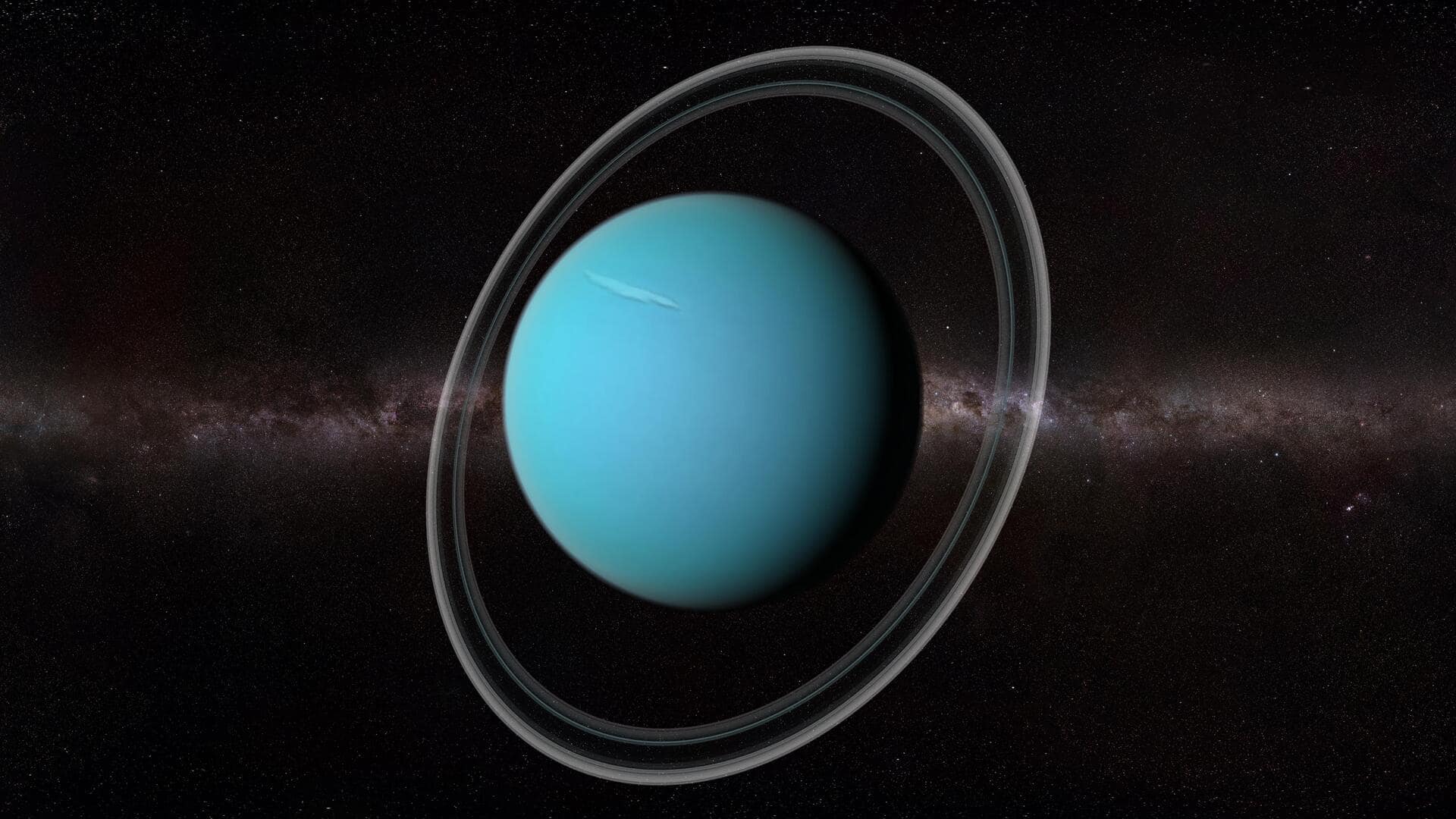
Uranus' original name was even more controversial
What's the story
Uranus, the seventh planet in our solar system, is often the butt of jokes due to its name. But did you know that this wasn't always the case? In fact, its original name was even more controversial. The planet was discovered in 1781 by German-British composer and scientist William Herschel using a 40-foot Newtonian reflector telescope.
Naming debate
The controversy behind Uranus's original name
Herschel, who discovered Uranus with the help of this technological marvel, named it "the Georgium Sidus," Latin for George's Star. The name was given in honor of King George III, who had funded the construction of the telescope. However, this naming decision was met with backlash from space enthusiasts and scientists alike. They argued that it didn't follow the traditional practice of naming planets after Greek or Roman gods and goddesses.
Information
The rise of the name Uranus
German astronomer Johann Elert Bode was the first to suggest the name Uranus, according to NASA. However, it wasn't until 1850 that it became widely accepted. Today, the International Astronomical Union (IAU) is the only authority allowed to name planets and stars.
Planetary features
Unique axial tilt and orbit
Uranus is a planet of extreme fascination as it rotates on its side with an axial tilt of about 98 degrees. This unusual feature was probably caused by some collision in the distant past. The planet takes 84 years to complete one orbit around the Sun. Due to this extreme tilt, each pole gets about 42 years of continuous sunlight followed by 42 years of darkness.